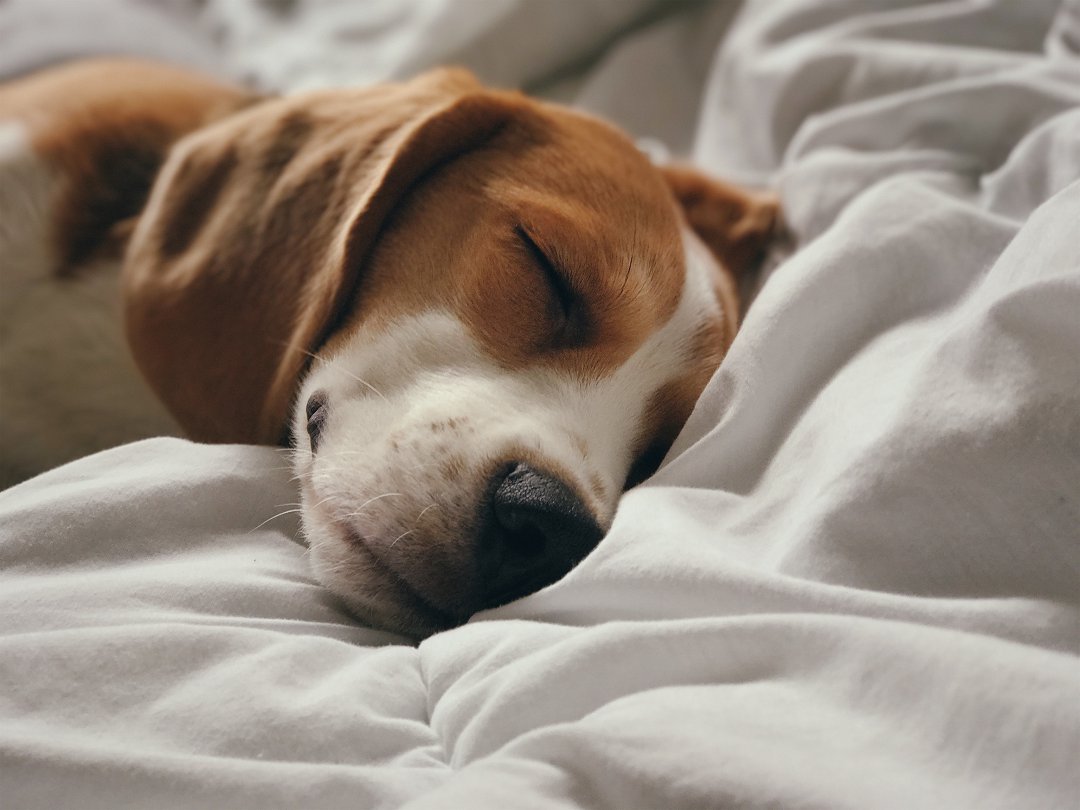Table of Contents
- 1 Introduction: A Step-by-Step Guide to Training a Beagle to Hunt Like a Pro
- 2 Expert Tips and Techniques: Unleashing Your Beagle’s Hunting Instincts
- 2.1 1. Understand the Beagle’s Hunting Instincts
- 2.2 2. Start with Basic Commands and Obedience Training
- 2.3 3. Introduce Scent Training
- 2.4 4. Practice Tracking and Trailing
- 2.5 5. Incorporate Hunting Games and Exercises
- 2.6 6. Join Beagle Hunting Clubs or Classes
- 2.7 7. Invest in Proper Hunting Equipment and Supplies
- 3 Mastering the Art of Beagle Training: Hunting Edition
- 4 FAQs About: How to Train a Beagle to Hunt
- 4.1 Can any beagle be trained to hunt?
- 4.2 What are some essential beagle hunting commands?
- 4.3 How can I tap into my beagle’s hunting instincts?
- 4.4 Are there any specific exercises or games that can help train my beagle for hunting?
- 4.5 Do I need specialized equipment for beagle hunting training?
- 4.6 Are there any resources available for beagle hunting training?
Introduction: A Step-by-Step Guide to Training a Beagle to Hunt Like a Pro
Are you ready to unlock your Beagle’s natural hunting instincts and turn them into a skilled hunter? Look no further! In this comprehensive guide, we will take you through the step-by-step process of training your Beagle to hunt like a pro. Whether you’re a seasoned hunter or a beginner, this guide will provide you with expert tips, techniques, and insider knowledge to help you unleash your Beagle’s hunting potential. From understanding their instincts to mastering the art of training, we’ve got you covered. So, let’s dive in and discover how to train a Beagle to hunt!
To start, it’s crucial to understand that Beagles are born with an innate hunting instinct. They have an exceptional sense of smell and a natural drive to track scents. However, training them to become skilled hunters requires patience, consistency, and the right techniques. In the next section, we will explore expert tips and techniques that will help you tap into your Beagle’s hunting instincts and enhance their skills. So, get ready to embark on an exciting journey of training your Beagle to become a proficient hunter!
Expert Tips and Techniques: Unleashing Your Beagle’s Hunting Instincts
Training a beagle to hunt requires more than just basic obedience commands. It involves tapping into their natural hunting instincts and honing their skills to become proficient hunters. Here are some expert tips and techniques to help you unleash your beagle’s hunting instincts:
1. Understand the Beagle’s Hunting Instincts
Beagles are scent hounds, which means they have a strong sense of smell and an innate desire to track scents. Understanding their instincts will help you tailor your training methods accordingly. Beagles have a natural ability to pick up scents and follow them, making them excellent hunting companions.
2. Start with Basic Commands and Obedience Training
Before diving into hunting-specific training, it’s essential to establish a foundation of basic commands and obedience training. Teach your beagle commands like sit, stay, come, and heel. These commands will serve as building blocks for more advanced hunting training.
3. Introduce Scent Training
Scent training is crucial for beagles as it enhances their ability to track and locate game. Start by introducing them to different scents, such as rabbit or deer scent. Use scent pads or dummies soaked in these scents and hide them in various locations for your beagle to find. Reward them when they successfully locate the scent.
4. Practice Tracking and Trailing
Once your beagle is comfortable with scent training, it’s time to practice tracking and trailing exercises. Start with short trails in familiar environments and gradually increase the difficulty level. Use treats or toys as rewards to motivate your beagle to stay focused on the trail.
5. Incorporate Hunting Games and Exercises
Make training sessions fun and engaging by incorporating hunting games and exercises. Play hide and seek with your beagle, where you hide a toy or treat and let them use their scenting skills to find it. Set up obstacle courses or simulate hunting scenarios to keep their skills sharp.
6. Join Beagle Hunting Clubs or Classes
Joining beagle hunting clubs or classes can provide valuable opportunities for your beagle to learn from experienced hunters and interact with other hunting dogs. These clubs often organize hunting trials and competitions, allowing your beagle to showcase their skills and learn from others.
7. Invest in Proper Hunting Equipment and Supplies
To train your beagle effectively for hunting, invest in the right equipment and supplies. This includes a well-fitting hunting vest, a durable leash and collar, scent pads or dummies, and a reliable GPS tracking system. Having the proper equipment will enhance your training sessions and ensure your beagle’s safety in the field.
By following these expert tips and techniques, you can unleash your beagle’s hunting instincts and train them to become skilled hunting companions. Remember to be patient and consistent in your training efforts, as it takes time for your beagle to develop their hunting skills. In the next section, we will delve into mastering the art of beagle training specifically for hunting purposes.
Mastering the Art of Beagle Training: Hunting Edition
Training a beagle to hunt requires patience, consistency, and a deep understanding of the breed’s natural instincts. By following a step-by-step guide and incorporating expert tips and techniques, you can help your beagle develop the skills necessary to become a proficient hunting companion. Here’s how to train a beagle to hunt like a pro:
1. Start with Basic Commands
Before diving into hunting-specific training, it’s important to establish a strong foundation of basic commands such as sit, stay, and come. These commands will serve as the building blocks for more advanced hunting exercises.
2. Introduce Scent Training
Beagles are renowned for their exceptional scenting abilities. To tap into this natural talent, incorporate scent training into your beagle’s routine. Start by introducing scents such as rabbit or bird feathers and rewarding your beagle for showing interest in them. Gradually increase the difficulty by hiding scented objects and encouraging your beagle to find them using their nose.
3. Practice Tracking Exercises
Tracking exercises are crucial for honing your beagle’s hunting skills. Begin by laying a scent trail using a drag rag soaked in the scent of the desired game. Encourage your beagle to follow the trail, rewarding them with treats or praise when they successfully track the scent. Gradually increase the length and complexity of the trails to challenge your beagle’s tracking abilities.
4. Introduce Retrieval Training
Retrieval training is essential for a hunting beagle. Teach your beagle to retrieve objects such as dummies or game birds using commands like “fetch” and “hold.” Start with short distances and gradually increase the difficulty by introducing obstacles or longer retrieves. This will help your beagle develop the necessary skills for bringing back hunted game.
5. Simulate Hunting Scenarios
To prepare your beagle for real hunting situations, simulate hunting scenarios during training sessions. Set up decoys or use scented dummies to mimic the presence of game. Encourage your beagle to track, flush, and retrieve the simulated targets. This will help them become familiar with the sights, sounds, and scents associated with hunting.
6. Join Hunting Clubs or Classes
Consider joining hunting clubs or enrolling in hunting classes specifically designed for beagles. These organizations provide opportunities for your beagle to train alongside other hunting dogs and learn from experienced trainers. Additionally, they often organize beagle hunting trials and provide access to specialized equipment and supplies.
By following these steps and incorporating the right training techniques, you can master the art of training your beagle to hunt. Remember to be patient, consistent, and always reward your beagle for their progress. With time and dedication, your beagle will develop the necessary hunting skills and instincts to become a successful hunting companion.
FAQs About: How to Train a Beagle to Hunt
Can any beagle be trained to hunt?
Yes, most beagles have natural hunting instincts, making them suitable for hunting training. However, it’s important to note that individual dogs may vary in their hunting skills and instincts. Some may require more training and guidance than others.
What are some essential beagle hunting commands?
Some essential beagle hunting commands include “sit,” “stay,” “come,” “find it,” and “leave it.” These commands help you control your beagle during the hunting process and ensure their safety in the field.
How can I tap into my beagle’s hunting instincts?
To tap into your beagle’s hunting instincts, expose them to scents and introduce them to the concept of tracking. You can use scent trails or hide treats for them to find. This helps develop their scenting abilities and enhances their hunting skills.
Are there any specific exercises or games that can help train my beagle for hunting?
Yes, there are several exercises and games you can incorporate into your beagle’s training routine. Playing hide and seek, setting up obstacle courses, and engaging in scent tracking activities are all effective ways to improve their hunting abilities and keep them mentally stimulated.
Do I need specialized equipment for beagle hunting training?
While specialized equipment is not always necessary, some items can enhance your beagle’s hunting training experience. These may include a long lead or leash, a hunting vest for visibility, scent training aids, and appropriate safety gear for both you and your dog.
Are there any resources available for beagle hunting training?
Yes, there are various resources available to assist you in training your beagle for hunting. Consider joining beagle hunting clubs or attending beagle hunting classes or trials. These provide opportunities for guidance, socialization, and learning from experienced hunters who can share tips and techniques. Additionally, you can find books, online forums, and videos that offer valuable insights into beagle hunting training.






Leave a Reply